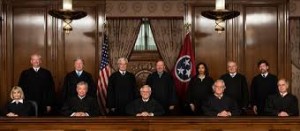Tennessee Appeals Court Reinstates DUI Charges Against Driver
Motorists stopped for speeding often face other problems, including charges of DUI in Los Angeles. The police can use the results of a field sobriety test to support the charge, but what happens if the results of that test are not clear?
 A ruling by Tennessee’s Court of Criminal Appeals will require Anthony John Silver to stand trial for driving under the influence, despite dispute over his performance on a field sobriety test. A Williamson County Circuit Court judge had thrown out Silver’s arrest, contending that the police officer on the case had inaccurately described what happened during the tests. The three-panel appeals court disagreed with that decision and reinstated the charges against Silva.
A ruling by Tennessee’s Court of Criminal Appeals will require Anthony John Silver to stand trial for driving under the influence, despite dispute over his performance on a field sobriety test. A Williamson County Circuit Court judge had thrown out Silver’s arrest, contending that the police officer on the case had inaccurately described what happened during the tests. The three-panel appeals court disagreed with that decision and reinstated the charges against Silva.
News agencies reported that Officer Adam Cohen of the Franklin Police Department pulled Silva over when he saw him driving 46 miles per hour in a 35 mph zone. Officer Cohen said Silva smelled like alcohol and admitted he had drunk three beers several hours earlier.
The legal dispute centers around what happened next. Officer Cohen said that Silva said “T” instead of “D” when asked to recite the alphabet and that he missed a step while walking and turning. After viewing the arrest video, the Circuit Court judge agreed with Silva’s contention that he had simply tripped and that he had indeed said “D” and not “T”. That judge ruled that Silva had actually performed quite well on the field sobriety test.
In disagreeing with this decision, the Court of Criminal Appeals said that a motorist didn’t have to show every sign of intoxication before an officer had the right to arrest him on probable cause. Since Silva had admitted he had been drinking, the judges said, Officer Cohen did indeed have probable cause for a DUI arrest.
Do you need assistance constructing an appropriate response to a DUI charge? Look to the Kraut Law Group Criminal & DUI Lawyers, Inc.’ Michael Kraut for insight and peace of mind. Mr. Kraut is an experience Los Angeles DUI attorney with many relevant connections in the local legal community.
 Los Angeles DUI Attorney Blog
Los Angeles DUI Attorney Blog

